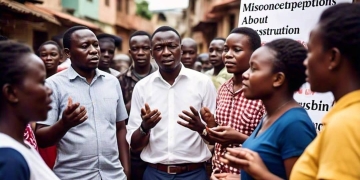
KAMPALA, Dec. 27 (Xinhua) — Uganda has a budding oil industry that experts project will fast-track the country’s economic development once commercial production starts. Back in 2014, Lamech Mbangaye dropped his studies in insurance and followed the oil dream. Mbangaye wants to be part of this oil journey.
His family was full of excitement when he got a scholarship sponsored by China National Offshore Oil Corporation (CNOOC) to go and study in China.
Mbangaye was uncertain of what would happen at his university, China University of Petroleum in Shandong Province, with a new community and culture, far from home. He told Xinhua in a recent interview that he took his mother’s advice to go with respect and humbleness as he pursued his studies.
Mbangaye did not disappoint, he qualified as a petroleum engineer, and his sponsor offered him a job in 2018. “I came in as a trainee at the lowest level, and I started dealing with these very experienced professionals who are teaching me about drilling engineering,” Mbangaye said.
“Oil and gas is something new in Uganda, something with which we did not have a lot of experience. Over these four years, I have been interfacing with so many different aspects of engineering.” Mbangaye is among thousands of young Ugandans gaining knowledge and skills from China to prepare them to take on the country’s oil sector.
CNOOC provides scholarships to best-performing yet underprivileged students, as part of the company’s Corporate Social Responsibility works.
The Chinese oil giant is one of the largest oil and gas companies in Uganda’s energy sector and owns one-third of its interests in the country’s oil sector. Ritah Nasaazi, also a petroleum engineer, is another beneficiary of CNOOC’s scholarship program.
Nasaazi, a fishmonger’s daughter in the remote Kikuube district, on the shores of Lake Albert, shared by Uganda and the Democratic Republic of the Congo, defied all odds and won a scholarship to study in China; and in return, CNOOC offered her a job.
“I was driven by the fact that it is a new industry in the country, so basically I really wanted to get involved as a woman with my background so that a woman can join an engineering sector and be part of a growing sector,” Nasaazi told Xinhua in an interview in October.
Away from the high skills, Chinese engineers and technicians in different companies are passing on skills to Ugandan youth. Building, welding and road construction are all critical skills that are needed in the oil and gas sector, according to Uganda’s Ministry of Energy and Mineral Development (MEMD).
Mbangaye is optimistic that as he continues to acquire more knowledge and skills from his Chinese counterparts, he will pass on the skills to Ugandans. CNOOC and France’s TotalEnergies in February announced the Final Investment Decision (FID) to start commercial production in Uganda. FID is the detailed plan that an oil company will follow to develop an oil field.
The 10-billion-U.S.-dollar project, according to the MEMD, includes the development of the oil wells and the construction of a crude oil pipeline that will transport the oil from the wells in the Albertine Graben in western Uganda to the Tanzanian seaport of Tanga. The 1,445-km pipeline, estimated to cost 3.55 billion dollars, will be the world’s longest-heated pipeline.
The first oil is expected in 2025 after completion of construction in the next four years, according to the energy ministry.
The project will generate about 160,000 jobs besides provisions of goods and services. Uganda in 2006 discovered 6.5 billion barrels of oil, of which 1.4 billion barrels are commercially viable, according to the MEMD.




















